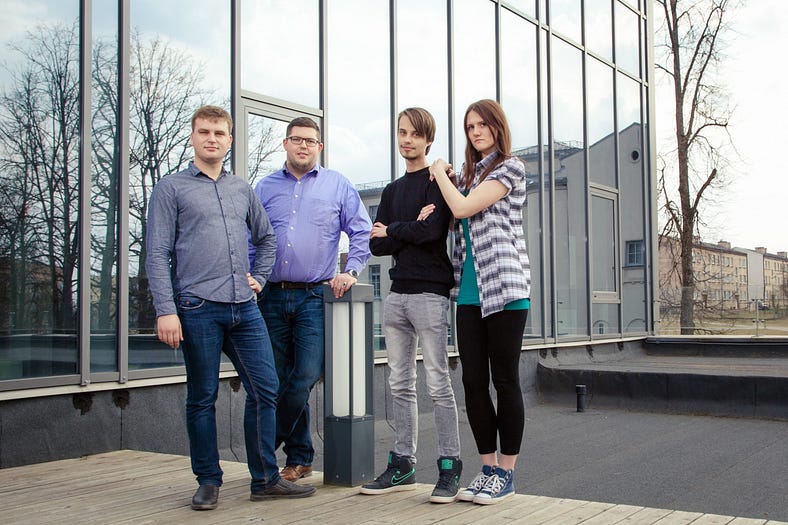How would you describe your business idea to a potential investor?
IMOLabs helps manufacturers of additive manufacturing machines, material producers and end users to find the right machine configurations in a fast and easy way. This decreases go-to-market times of new materials and machines in additive manufacturing and decreases the value of the existing portfolio by finding new material properties.
What problem do you want to solve, what is your goal?
Finding the right machine configurations in additive manufacturing is a difficult task. To make an existing material printable it can take up to 3 years. This leads to the situation that in classical manufacturing there are appr. 10 000 materials available, in additive manufacturing there are less than 100. We want to solve this problem and increase go-to-market times for new materials.





How did you come up with your idea/concept?
Our CTO, Pavels Cacivkins, was working at the laser processing lab at Rezekne Academy of Technologies. Having a master in IT, he wanted to solve the problem of finding laser machine configurations for laser color marking (also a very difficult task), this is how he developed the algorithm. A short while ago, we realized that the problem is even more pronounced in additive manufacturing and that our algorithm can also be used in this field. So, we pivoted.
What is your business model?
We plan to sell software licences, most probably as a cloud service, and licencing our software to be integrated into industrial 3D printers.
What makes your solution unique?
Most of the other solutions currently on the market or at the research stage are automating the classical optimization process or using big data based expert systems, that basically try to copy the expert knowledge available. These systems are very difficult to built and don’t adjust very well to changes. We use a small data approach, in which our software itselfs builts models based on trial and error. This allows us to start with very little knowledge about the machine, the material or the physical interaction. We can use big data to increase the speed of our algorithm, this big data can, however, be produced by our software, which makes it better understandable for our algorithm than large unordered databases.
What is your vision?
Industrial automation is an important driver of our economy. Many innovations were introduced into this markets in the last years. However, the machine optimization and the search of parameter values is still a mostly manual and labor intensive task. IMOLab is offering the possibility of a full end-to-end automation of the manufacturing process and will allow in the future the automatic adjustment to new materials, machines and manufacturing processes. This will allow R&D departments to work on innovation instead of searching machine parameter values.
What are your plans for the future?
Until end of 2019 we plan to add the possibility of growing a digital twin within IMOLab. Using this digital twin we can do predictive maintenance, we can predict machine configurations without measurements and use it for machine to machine (M2M) translation of configurations. This will allow a full automation of the manufacturing process and the production of goods at remote places, without human interaction.
Why did you decide to work with XPRENEURS?
XPRENEURS and the network around it have access to some of the biggest and most interesting names in the business. This opens us a lot of doors, is a huge help and was a major reason for us to apply. Now that we are in, we also realize that the courses provided by the team of and around XPRENEURS are very valuable for us and the success of our start-up.
Source: https://stories.xpreneurs.io/imolab-7f07475a82d7
Project “Laser processing optimization tool”, project identification No.KC-PI-2017/97, contract No.KC-L-2017/20 between Rezekne Academy of Technologies and the Investment and Development Agency of Latvia on participation at technology transfer event has been signed in the framework of the fund mentioned in the article 17.1.6. of the Cabinet Regulation No. 692 Adopted on 25 October 2016 Regulation for Implementation of the Activity 1.2.1.2 “Support for Improvement of Technology Transfer System” of the Specific Support Objective 1.2.1 “To increase investments of private sector in R&D” of the Operational Programme “Growth and Employment”.
